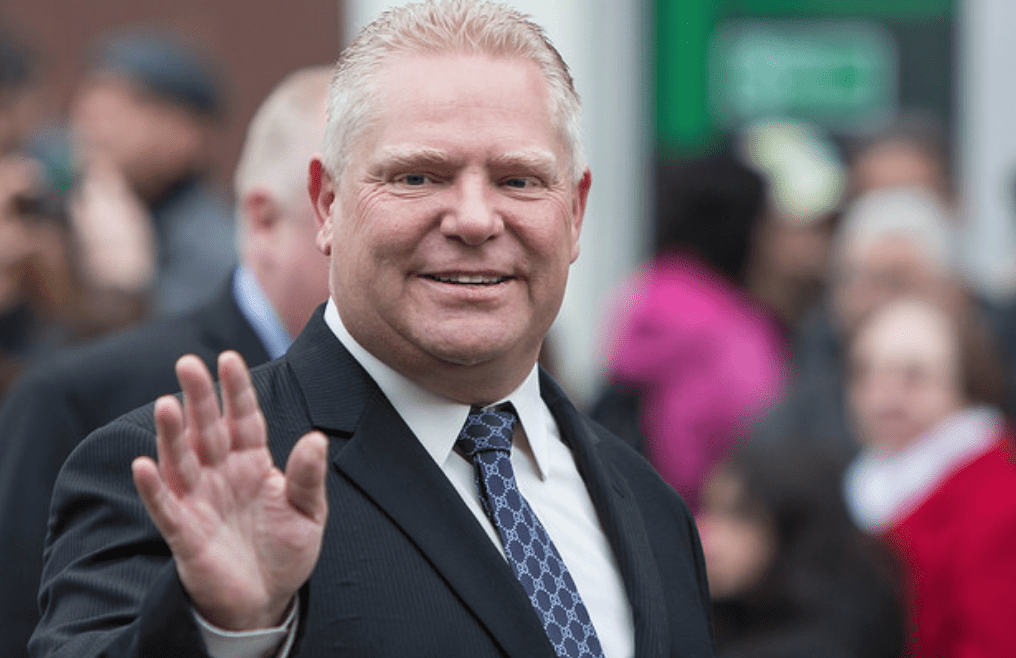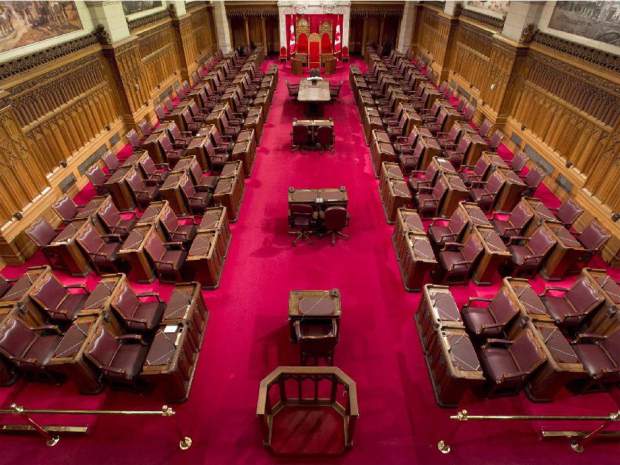Pretty much the worst thing you can predict in Canadian politics is that our discourse is going to get more, not less, polarized. It kind of strikes at the heart of who we supposedly are as a nation.
That's why, when I theorized about a Ford facing off against Kathleen Wynne in a Canadian Edition of Election 2016 (like a Canadian version of some bad reality show, like Big Brother Canada), the prediction was panned at best and shunned at worst. Nevertheless: So it was written, and so it has come to pass.
We can, and will, blame Twitter or Trump for this sorry state of affairs. Our talking heads will bleat about how this isn't who we are as a nation.
All the while, centrist governments will continue to screw things up, like when they try to tell voters that Doug Ford said he "loves the blacks" when in reality he said nothing of the sort, or when they sputter in faux outrage about how Ford doesn't seem to understand how things work when that's part of his appeal.
The Premier herself has gotten her messaging wires so badly crossed thanks to her barely-suppressed rage and visceral disgust at all Ford stands for that she let this gem fly: "He may be Donald Trump, but I'm not Hillary Clinton." Huh????
Wynne also put this inspired call to action on the public record: "I'm not going to go low. I'm not going to go high. I'm going to call out that bullying behaviour for what it is." Well, where is the Premier going then, if not low or high? Perhaps nowhere fast?
The only people who think that this pathetic, pale pink passive-aggressiveness is cutting it are the most rabid of Liberal partisans. Wynne and her goons are trying their best to appear reasonable next to Ford and failing, which is certainly saying something.
If I'm this sick of progressive bromides (instead of the effectively aimed brickbats she should be flinging at him if she actually wants to win), I can't imagine how it must feel for actual Liberals and NDP supporters.
And so, as was the case for the right, who got so sick of the PC Party "borrowing from the Liberal playbook" that they went and elected Ford leader, we can expect an equal and opposite reaction from the left especially if Wynne gets annihilated, as she is currently on course to.
What I mean by that is that the Nora Loretos and Kevin Metcalfs of the world, the far-flung fringiest of the lefty Canadian fringe, are about to become the mainstream, leaving the centre-left in a state of confusion and disarray.
Yes, I know: Jagmeet Singh's commanding victory and Andrea Horwath's positioning as the protest vote for people who hate Wynne but can't stomach the thought of Premier Ford make such a scenario unlikely. But if you travelled back in time to 2016 and told them that this election would be shaping up as a Canadian re-enactment of the US Presidential go-round of that year, they'd think you were as nuts as they thought me back then, when I predicted it.
For you see, Metcalf and Loreto may have united the country against them with their views, but you must say this for them: They are supremely confident in those views of theirs, and they are supremely dedicated to making those views the mainstream. Far more so than Singh, Horwath, Wynne, Brown, or any of the mealy-mouthed, difference-splitting compromise candidates past or present.
This is why we keep getting populist showdowns between opposing groups of fact-free fanatics- not because the populists make sense, or because they have the weight of evidence on their side, or because they are beloved by the establishment. They look good, comparatively because unlike their opponents they are willing to do what is necessary to win, and they are willing to sacrifice personally to do so while their opponents fret over messaging and step on their own toes.
So, Liberals, if you are at all serious about winning in June, heed these words: Deploy everything you have against Doug Ford, and damn the consequences. Don't wait for the writ to drop. Don't wait for him to blow up. Don't concern yourself with the backlash. Fight like you're fighting for your lives because you are, and because Doug Ford already is.
Written by Josh Lieblein








